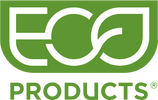LEARN
Legislation & Policy
There has been a considerable amount of legislation in just the last few years related to single-use packaging and foodservice products specifically.
The information below is intended to provide an overview of the areas of focus for regulators, and may not reflect the most recent regulatory developments.
2023 United States Legislative Landscape
~230 proposed pieces of legislation relating
to foodservice packaging in 34 States
For detailed information on specific legislation and opportunities to engage as bills are moving through the legislative process, we highly recommend that you check out the wonderful committees dedicated to this work at the Biodegradable Products Institute (BPI) and the Foodservice Packaging Institute (FPI).
Fluorinated Chemicals / PFAS
Twelve US States have either banned or enacted phase-outs of intentionally-added PFAS in foodservice packaging (as of March 2024).
Per- and polyfluorinated substances (PFAS) are sometimes used in fiber packaging to increase performance and grease resistance.
In January of 2020, the Biodegradable Products Institute (BPI) added rules around the intentional use of fluorinated chemicals for the products they certify.
BPI’s threshold of 100 ppm total organic fluorine has been adopted by every state with legislation in this category, meaning that if a fiber product is BPI-Certified, it also meets all state requirements for the use of fluorinated chemicals.
Our Vanguard® line was the first set of products to be BPI-Certified under the new rules, and it remains the largest assortment of no-added PFAS products in the industry.
Labeling Requirements for Compostable Products
Beginning in 2024, bioplastic and bioplastic-lined items in Washington and Colorado will be required to:
- Meet ASTM standards for compostability
- Display a third-party certification logo
- Feature the word “Compostable”
- Utilize coloring, striping, or symbols that differentiate the item from non-compostable products (green only in Colorado, green or brown in Washington)
Our Veridian™ collection of tinted and printed compostable products is designed to help customers follow these new rules.
Expanded Polystyrene (EPS) Bans
Twelve US States and the District of Columbia have passed bans on the use of EPS for foodservice containers. (as of March 2024).
Eco-Products does not have EPS in our portfolio, and our cold cups, hot cups, clear clamshells, and molded fiber products are all compliant options for these regulations.
Extended Producer Responsibility
California, Oregon, Colorado, and Maine have all passed different versions of Extended Producer Responsibility (EPR) legislation.
These bills vary widely in approach, but the basic idea is that a revenue stream generated from the sale of single-use items is used to fund improvements in recovery infrastructure.
These bills frequently set recovery targets for single use items, and may require that all single-use items are recyclable, compostable, or reusable by a specified date.
Minimum Post-Consumer Recycled Content (PCR) Requirements
California, Washington, and New Jersey have laws requiring that different classes of plastic products contain minimum percentages of post-consumer recycled content.
